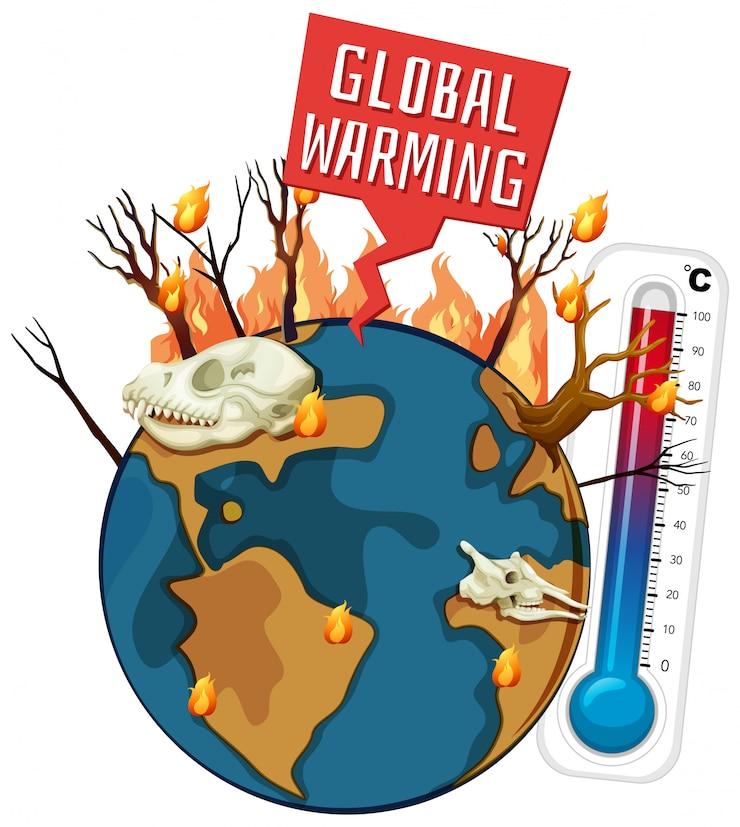Global warming, a phenomenon of rising average temperatures near the Earth's surface, is a critical environmental issue with far-reaching consequences for both ecosystems and human societies.Primarily caused by increased greenhouse gas concentrations due to human activities, it is leading to significant climate changes and disruptions worldwide. Addressing this challenge requires a multifaceted approach involving individual, governmental, and industrial efforts to mitigate emissions and adapt to the changing climate.
Causes of Global Warming:
The primary driver of global warming is the increase in greenhouse gases in the atmosphere, primarily carbon dioxide, methane, and nitrous oxide. These gases trap heat from the sun, preventing it from radiating back into space, thus warming the planet. Human activities, such as burning fossil fuels (coal, oil, and natural gas) for energy, deforestation, and industrial processes, are the main sources of these emissions. Deforestation reduces the amount of carbon dioxide absorbed by trees, while industrial processes release greenhouse gases directly into the atmosphere.
Effects of Global Warming:
Global warming is causing a range of severe impacts on the planet, including:
- Rising Temperatures:Increased average global temperatures are melting glaciers and ice sheets, contributing to rising sea levels and threatening coastal communities.
- Extreme Weather Events:Global warming is linked to more frequent and intense heatwaves, droughts, floods, and hurricanes, causing widespread destruction and loss of life.
- Disrupted Ecosystems:Changes in temperature and precipitation patterns are altering habitats and affecting biodiversity, leading to shifts in species ranges and potential extinctions.
- Ocean Acidification:As the ocean absorbs excess carbon dioxide, it becomes more acidic, harming marine life, particularly shellfish and coral reefs.
Addressing Global Warming:
Combating global warming requires a global effort involving individual actions, government policies, and technological advancements.
- Individual Actions:Reducing energy consumption, switching to renewable energy sources, adopting sustainable transportation, and supporting businesses with environmentally friendly practices can make a difference.
- Government Policies:Implementing carbon pricing mechanisms, investing in renewable energy infrastructure, promoting sustainable land management practices, and supporting international agreements like the Paris Agreement can have a significant impact.
- Technological Advancements:Developing and deploying technologies like carbon capture and storage, renewable energy technologies, and sustainable transportation solutions are crucial for long-term mitigation.
Conclusion:
Global warming is a serious threat to the planet and its inhabitants, but it is not an insurmountable challenge. By understanding the causes and effects of global warming, and by taking collective action to reduce greenhouse gas emissions and adapt to the changing climate, we can work towards a more sustainable future for all

